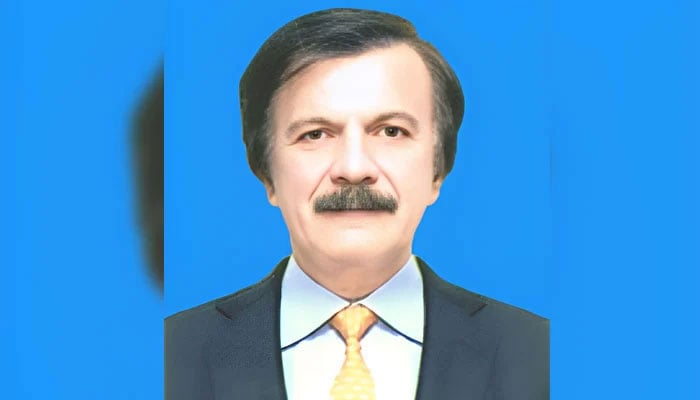New NTP to cut average tariffs to 7.2% by 2029
With implementation of newly envisaged NTP, it might lead to decrease in prices of vehicles and other products in Pakistan
ISLAMABAD: In a bid to fulfil the IMF conditions, Pakistan has envisaged a National Tariff Policy (NTP) for five years (2025-29) to slash the average weighted tariff by almost 1 per cent in the upcoming budget.
With the implementation of newly envisaged NTP, it might lead to a decrease in prices of vehicles and other products in Pakistan. The NTP 2025-29 has been prepared and will be implemented from the budget for 2025-26. The overall weighted average tariff will be slashed from 10.6 per cent to 7.2 per cent in five-year period till 2029.
In the first year of implementation of the newly envisaged NTP after getting approval of the prime minister and federal cabinet, the average weighted tariff would be reduced by close to 1pc from the next budget for 2025-26.
When Special Assistant to the Prime Minister (SAPM) for Industries and Production Haroon Akhtar was contacted on Thursday, he said the National Tariff Policy was home-grown agenda in order to achieve export-led sustainable growth. He said that the average weighted tariff would be reduced in a synchronized and phased manner.
He was of the view that there were two viewpoints: one is to sticking to protectionism, and the second to opening up everything to implement a free market economy. The upcoming national tariff policy, he said, would adopt a balanced approach to achieve competitiveness and efficiency.
However, the sources said that the auto sector has broadly agreed to the rationalisation of tariffs but asked the government to ensure lending from the commercial banks for leasing of vehicles, and secondly to undertake measures for discouraging import of used cars. The auto sector production stood at 150,000 vehicles per annum but possessed the capacity to jack it up to 0.5 million. The tariff on vehicles hovered around 150 to 190pc.
There is another challenge facing the auto sector with increased numbers of Electric Vehicles as the government has envisaged 30pc of new vehicles to the EVs in five years and 50pc by 2030.
“This tariff reduction will give benefits to certain major sectors such as steel, textile, and engineering, etc. However, the government will adopt a gradual approach to avoid depletion of hard-earned dollars for averting a balance of payment crisis,” said the official.
-
 Camila Mendes Finally Reveals Wedding Plans With Fiancé Rudy Mancuso
Camila Mendes Finally Reveals Wedding Plans With Fiancé Rudy Mancuso -
 Beatrice, Eugenie Blindsided By Extent Of Sarah Ferguson’s Epstein Links
Beatrice, Eugenie Blindsided By Extent Of Sarah Ferguson’s Epstein Links -
 Girl And Grandfather Attacked In Knife Assault Outside Los Angeles Home
Girl And Grandfather Attacked In Knife Assault Outside Los Angeles Home -
 Super Bowl Halftime Show 2026: What Did Trump Say About Bad Bunny?
Super Bowl Halftime Show 2026: What Did Trump Say About Bad Bunny? -
 Piers Morgan Defends Bad Bunny's Super Bowl Performance, Disagrees With Trump Remarks
Piers Morgan Defends Bad Bunny's Super Bowl Performance, Disagrees With Trump Remarks -
 Andrew Lands In New Trouble Days After Royal Lodge Eviction
Andrew Lands In New Trouble Days After Royal Lodge Eviction -
 Instagram, YouTube Addiction Case Trial Kicks Off In California
Instagram, YouTube Addiction Case Trial Kicks Off In California -
 Agentic Engineering: Next Big AI Trend After Vibe Coding In 2026
Agentic Engineering: Next Big AI Trend After Vibe Coding In 2026 -
 Keke Palmer Makes Jaw-dropping Confession About 'The Burbs'
Keke Palmer Makes Jaw-dropping Confession About 'The Burbs' -
 Cher Sparks Major Health Concerns As She Pushes Herself To Limit At 79
Cher Sparks Major Health Concerns As She Pushes Herself To Limit At 79 -
 Former NYPD Detective Says Nancy Guthrie's Disappearance 'could Be Hoax'
Former NYPD Detective Says Nancy Guthrie's Disappearance 'could Be Hoax' -
 King Charles Publicly Asked If He Knew About Andrew's Connection To Epstein
King Charles Publicly Asked If He Knew About Andrew's Connection To Epstein -
 Jessie J Addresses Pregnancy Rumors After Sporting Belly Bump
Jessie J Addresses Pregnancy Rumors After Sporting Belly Bump -
 Channing Tatum Leaves Fans Scratching Their Heads With Message About South Korea
Channing Tatum Leaves Fans Scratching Their Heads With Message About South Korea -
 Emma Roberts Stars In 'A Body In The Woods'
Emma Roberts Stars In 'A Body In The Woods' -
 'Our Estrangements Can Kill Us': Meghan's Co-star Weighs In On Anthony Hopkins Interview
'Our Estrangements Can Kill Us': Meghan's Co-star Weighs In On Anthony Hopkins Interview




